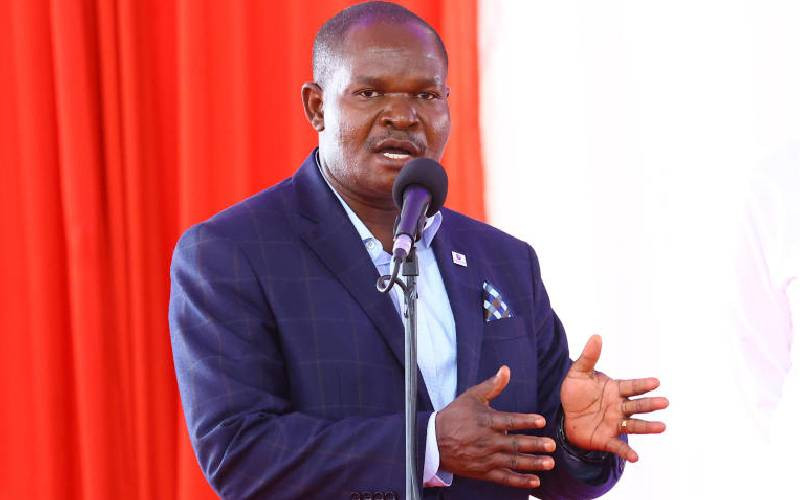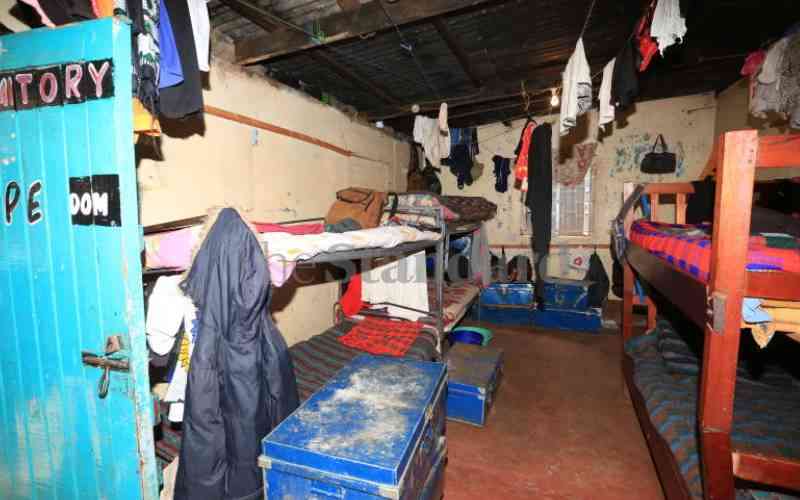By Evelyne Ogutu
There are only 9.9 per cent women MPs in Kenya, quite a low number given that women’s population stands at 52 per cent.
In the current August House, the number of elected women MPs is 16 while those nominated decreased to six. Male MPs are still the majority constituting of 89.1 per cent.
However, this is a slight improvement compared to seven years ago when the number of women MPs stood at 18, of which eleven were elected while seven were nominated.
Nyeri Town MP, Esther Murugi, says women lack financial resources to vie for political seats.
 |
Women politicians at a recent MPs’ retreat in Naivasha. |
Murugi, who made history by being the first woman MP for Nyeri Town constituency, says due to high poverty level, many women shy away from going for the top seat. "I was the only female candidate on the campaign trail in my constituency. Male candidates will always engineer smear campaigns to make one look like she is not capable of leading," says Murugi.
However, in the recent years there has been a slight increase in the number of women ministers. Last year there were six female Cabinet ministers, up from three in 2003.
Parliamentary committees
The number of assistant ministers also increased from four to six. The Ministers include Charity Ngilu, Naomi Shaban, Esther Murugi, Sally Kosgei and Hellen Sambili. Martha Karua has since resigned as minister.
In addition, six women MPs head parliamentary committees, three as chairpersons and three as vice- chairpersons.
The number of Kenyan women ambassadors and high commissioners has increased from three and seven to six and 11, respectively from 2003 to 2009.
In 2003, seven out of 40 ambassadors who represented the country abroad were women, standing at only 20.6 per cent. By last year, there were 11 women ambassadors rising the percentage to 27.5 per cent.
After the 2007 elections, women represented 15.9 per cent of the Permanent Secretaries — indicating a slight increase from 2003 where women PSs constituted only 12.5 per cent.
However, there was slight change of perceptions, attitudes, beliefs and practices in relation to women’s participation in the politics.
Stay informed. Subscribe to our newsletter
Acceptance of women’s leadership in political matters by communities is an indication that culture is changing. The change can be attributed partly to women’s proven capability of political leadership.
For the first time, a woman, Florence Jaoko, has been appointed to head the Government-sponsored Kenya National Commission on Human Rights, while the Truth Justice and Reconciliation Commission (TJRC) Vice-Chair is Betty Murungi. The Committee of Experts on constitutional review has Ms Atsango Chesoni as vice-chair.
Poor representation
Subsequent Government appointments, like the Waki and Kriegler Commissions, did not comply with this directive. It is however, noteworthy that issues of sexual and gender-based violence were compressively dealt with in the Waki Report despite women not being represented.
 The Standard Group Plc is a
multi-media organization with investments in media platforms spanning newspaper
print operations, television, radio broadcasting, digital and online services. The
Standard Group is recognized as a leading multi-media house in Kenya with a key
influence in matters of national and international interest.
The Standard Group Plc is a
multi-media organization with investments in media platforms spanning newspaper
print operations, television, radio broadcasting, digital and online services. The
Standard Group is recognized as a leading multi-media house in Kenya with a key
influence in matters of national and international interest.
 The Standard Group Plc is a
multi-media organization with investments in media platforms spanning newspaper
print operations, television, radio broadcasting, digital and online services. The
Standard Group is recognized as a leading multi-media house in Kenya with a key
influence in matters of national and international interest.
The Standard Group Plc is a
multi-media organization with investments in media platforms spanning newspaper
print operations, television, radio broadcasting, digital and online services. The
Standard Group is recognized as a leading multi-media house in Kenya with a key
influence in matters of national and international interest.








